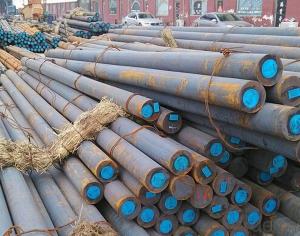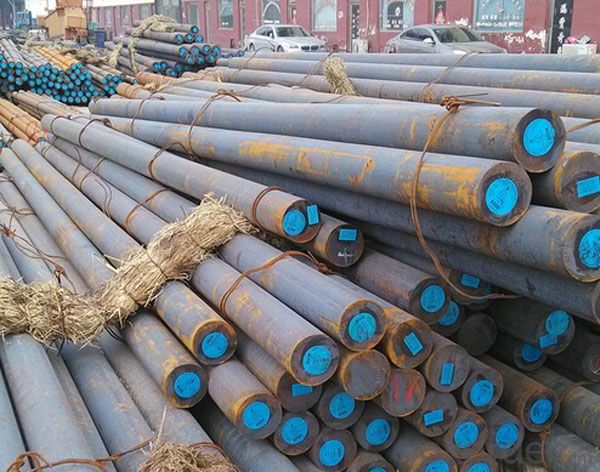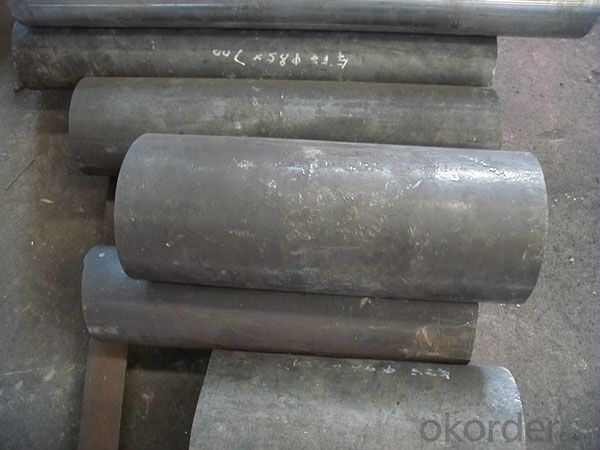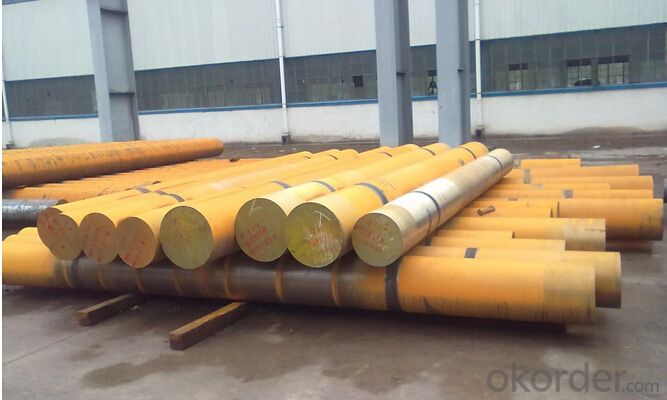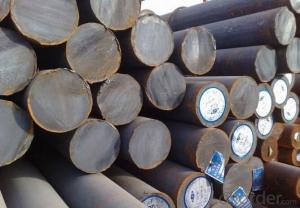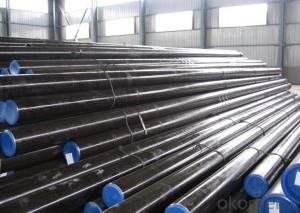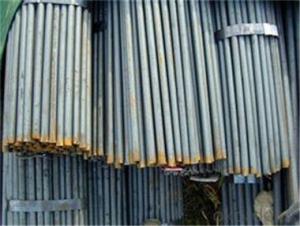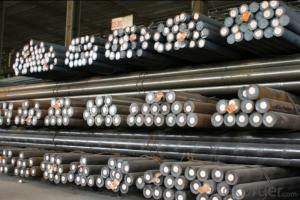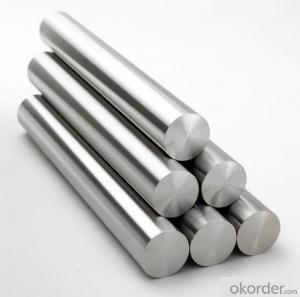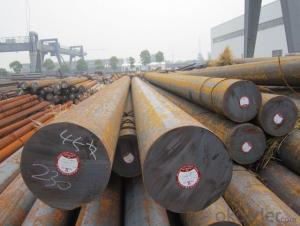Round Bar ASTM1020, 1045,1035 Forged Steel Special Steel
- Loading Port:
- China main port
- Payment Terms:
- TT OR LC
- Min Order Qty:
- 30 m.t.
- Supply Capability:
- 10000 m.t./month
OKorder Service Pledge
OKorder Financial Service
You Might Also Like
Specification
ASTM1020, 1045,1035 forged steel round bar
Standard | GB/T699,GB/T700,GB/T702 |
Grade | 20#,35#,45#,Q235B- Carbon Steel bar |
Dimensions | Dia 10mm-1000mm |
Place of Origin | China (Mainland) |
Secondary Or Not | Non-secondary |
Application | Structure bar |
Technique | Forged |
Certification | API |
Alloy Or Not | Is Not Alloy |
packing | Hexagon bundle or bare bundle |
Delivery | By container/train/lorry |
Delivery time | 10days |
Third Party Inspection | SGS/BV/LORDS |
Product show
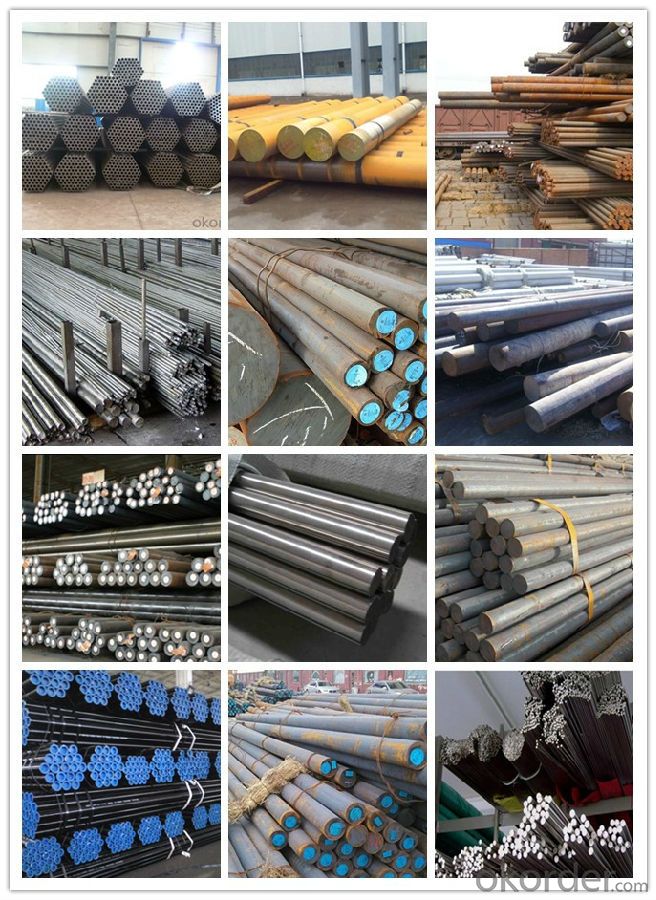
Workshop show
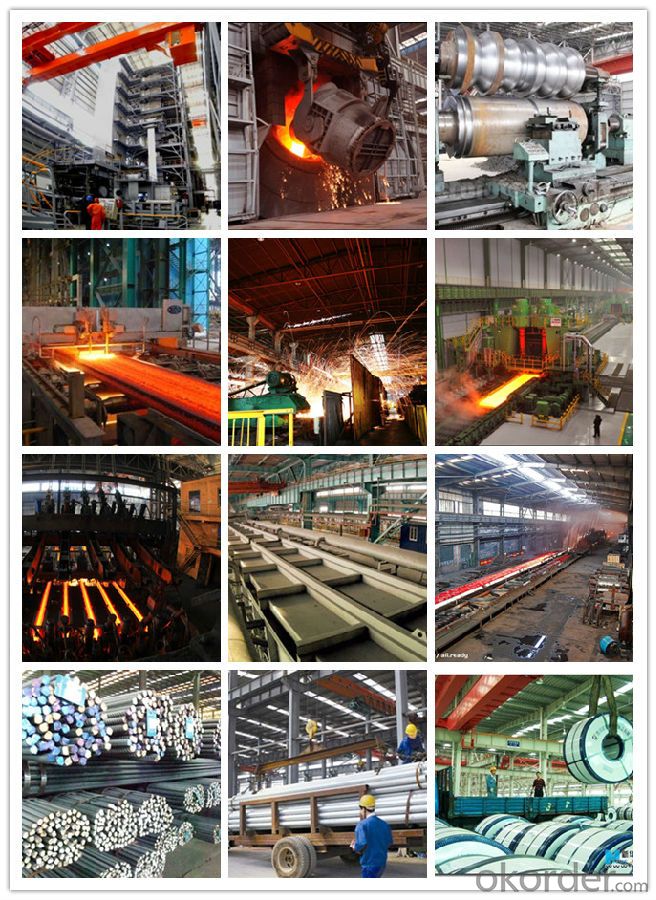
Shipping
1. FedEx/DHL/UPS/TNT for samples, Door-to-Door;
2. By Air or by Sea for batch goods, for FCL; Airport/ Port receiving;
3. Customers specifying freight forwarders or negotiable shipping methods!
Delivery Time: 3-7 days for samples; 5-25 days for batch goods.
Payment Terms
1.Payment: T/T, L/C, Western Union, MoneyGram,PayPal; 30% deposits; 70% balance before delivery.
2.MOQ: 1pcs
3.Warranty : 3 years
4.Package Informations: 1) EXPORT, In 20 feet (GW 25 ton) or 40 feet Container (GW 25 ton)
2)as customer's requirement
Why choose us?
(1) The leading exporter in China special steel industry.
(2) Large stocks for various sizes, fast delivery date.
(3) Good business relationship with China famous factories.
(4) More than 7 years steel exporting experience.
(5) Good after-sales service guarantee.
- Q: What are the different peening techniques used for special steel?
- Some of the different peening techniques used for special steel include shot peening, ultrasonic peening, laser peening, and needle peening.
- Q: What are the different types of case-hardening steel?
- There are several different types of case-hardening steels, including carburizing steel, nitriding steel, and cyaniding steel. These steels are specifically designed to undergo a surface-hardening process, where the outer layer of the steel is made harder while maintaining a tough core. Carburizing steel is treated with carbon-rich materials to increase its carbon content, while nitriding steel is exposed to nitrogen to form a hard surface layer. Cyaniding steel is treated with cyanide salts to produce a hard and wear-resistant surface. Each type of case-hardening steel has its own specific properties and applications.
- Q: Can special steel be used in the construction industry?
- Yes, special steel can be used in the construction industry. Special steel, such as stainless steel or high-strength steel, offers various advantages including durability, corrosion resistance, and high strength-to-weight ratio. These qualities make it suitable for applications in building structures, bridges, reinforcement bars, and other construction components where strength and resistance to external elements are essential.
- Q: What are the different electrical grades of special steel?
- There are several electrical grades of special steel that are specifically designed to have superior electrical properties. These grades include: 1. Electrical Silicon Steel: This grade of special steel contains a high percentage of silicon, typically around 3-4%. The presence of silicon helps to minimize eddy current losses and improve the magnetic properties of the steel, making it ideal for use in electrical transformers and motors. 2. Electrical Stainless Steel: This grade of special steel is made from stainless steel alloys, which are known for their excellent corrosion resistance. The electrical stainless steel has a low electrical resistivity and high thermal conductivity, making it suitable for electrical connectors, terminals, and other components that require good electrical conductivity and resistance to oxidation. 3. Electrical Tool Steel: Tool steels are commonly used in the manufacturing of various tools and dies. Some tool steels are specifically formulated to have improved electrical properties, including high electrical conductivity and resistance to heat. These grades are often used in the production of electrical contacts, switches, and other electrical components that require high wear resistance and good electrical performance. 4. Electrical Copper-Clad Steel: This grade of special steel is made by bonding a layer of copper to a steel core. The copper layer provides excellent electrical conductivity, while the steel core provides strength and durability. Electrical copper-clad steel is commonly used in applications where high electrical conductivity is required, such as in power transmission lines and grounding systems. Overall, the different electrical grades of special steel offer a range of electrical properties to meet the specific needs of various electrical applications. These grades are carefully engineered to provide optimal electrical performance, durability, and resistance to corrosion and wear.
- Q: What are the thermal properties of special steel?
- Special steel, also known as tool steel or alloy steel, possesses excellent thermal properties. It has a high melting point, allowing it to withstand extreme temperatures without losing its structural integrity. Furthermore, special steel exhibits good heat resistance, ensuring it retains its strength and hardness even when exposed to high thermal loads. Additionally, its thermal conductivity is relatively low, making it suitable for applications where heat transfer needs to be controlled or minimized. Overall, the thermal properties of special steel make it a reliable material for various industrial and engineering applications that involve high temperatures and thermal stresses.
- Q: What are the different methods of surface anodizing for special steel?
- Surface anodizing for special steel can be achieved through various methods, each with its own advantages and applications. Below are some of the different techniques available: 1. Chromic Acid Anodizing: By immersing the steel in a chromic acid solution, a thin, hard, and corrosion-resistant oxide layer forms on its surface. This method is particularly effective for enhancing durability and aesthetic appeal, as it enables excellent adhesion for paint and other coatings. 2. Sulfuric Acid Anodizing: Widely utilized, this method involves immersing the steel in a sulfuric acid bath and applying a direct current to create an oxide layer on the surface. It offers exceptional corrosion resistance, increased hardness, and improved wear resistance. Additionally, it provides a solid foundation for achieving various colors and finishes by applying dyes or sealing. 3. Phosphoric Acid Anodizing: Primarily used for stainless steel, phosphoric acid anodizing entails immersing the steel in a phosphoric acid solution and applying a direct current. This process generates a protective oxide layer that enhances corrosion resistance and yields a uniform matte finish. Phosphoric acid anodizing is commonly employed in applications where aesthetics are not a priority. 4. Titanium Anodizing: This method involves anodizing steel using titanium electrodes, resulting in a thick oxide layer on the surface. The outcome is improved corrosion resistance, increased hardness, and enhanced wear resistance. Titanium anodizing finds significant usage in industries like aerospace, where robust and durable surface properties are vital. 5. Hard Anodizing: Distinguished by its specialized nature, hard anodizing produces a thick and highly durable oxide layer on the steel surface. It achieves this by employing higher voltage and lower temperature during the anodizing process. Consequently, it enhances hardness, wear resistance, and electrical insulation properties. Hard anodizing is particularly valuable for applications requiring superior abrasion resistance, such as parts exposed to heavy wear or friction. These are merely a few examples of the various methods available for surface anodizing of special steel. The selection of the most suitable technique depends on specific application requirements, desired properties, and the type of steel being treated. It is crucial to consult with industry experts to determine the optimal anodizing method for a particular steel application.
- Q: What are the specific requirements for special steel used in the chemical industry?
- Special steel used in the chemical industry must meet specific requirements in order to ensure optimal performance and safety. Some of the key requirements for special steel in the chemical industry include: 1. Corrosion resistance: Special steel used in the chemical industry must possess high resistance to corrosion, as it will be exposed to various aggressive chemicals and corrosive environments. This means that the steel should be able to withstand the corrosive effects of acids, alkalis, and other chemicals commonly used in the industry. 2. High temperature resistance: The steel should have excellent heat resistance to withstand high operating temperatures often encountered in chemical processes. This is important to ensure that the steel does not degrade or lose its strength when exposed to elevated temperatures. 3. Mechanical strength: Special steel used in the chemical industry should have superior mechanical strength to withstand the high stress and pressure that can occur during chemical processes. It should be able to maintain its structural integrity even under challenging conditions. 4. Resistance to fatigue and stress: The steel should have good resistance to fatigue and stress, as it will be subjected to cyclic loading and pressure variations during operation. This is crucial to ensure the longevity and reliability of the steel in the chemical industry. 5. Resistance to pitting and crevice corrosion: Special steel should be resistant to pitting and crevice corrosion, which can occur in areas of the steel that are exposed to stagnant or low-velocity corrosive media. Pitting and crevice corrosion can lead to localized damage and failure of the steel, so resistance to these types of corrosion is essential. 6. Low impurity content: Special steel used in the chemical industry should have low impurity content to minimize the risk of contamination of the chemicals being processed. Impurities can react with the chemicals or cause unwanted reactions, potentially leading to product quality issues or safety hazards. 7. Easy cleanability: The steel should have a smooth surface and be easily cleanable to prevent the buildup of contaminants or fouling. This is important to maintain the purity of the chemicals being processed and to ensure efficient operation of the equipment. Meeting these specific requirements ensures that special steel used in the chemical industry can withstand the harsh conditions and corrosive environments encountered, while maintaining its structural integrity, performance, and safety.
- Q: What are some innovative applications of special steel?
- Special steel, also known as alloy steel, offers a wide range of innovative applications due to its unique properties and characteristics. Some of these applications include: 1. Aerospace Industry: Special steel is extensively used in the aerospace industry for manufacturing critical components like turbine blades, landing gears, and structural parts. Its high strength, excellent corrosion resistance, and ability to withstand extreme temperatures make it an ideal choice for these applications. 2. Automotive Industry: Special steel finds various applications in the automotive industry, including the production of engine components, suspension systems, and safety-related parts. Its exceptional strength-to-weight ratio and resistance to wear and fatigue ensure improved performance, durability, and safety in vehicles. 3. Medical Devices: Special steel is utilized in the manufacturing of surgical instruments, implants, and medical equipment. Its biocompatibility, high strength, and resistance to corrosion make it suitable for use in implants such as artificial joints, stents, and dental implants. 4. Energy Sector: Special steel plays a crucial role in the energy sector, particularly in power plants, nuclear reactors, and oil and gas facilities. Special steel pipes and tubes are used for conveying fluids and gases, while its high-temperature resistance is essential for components like steam turbines and boilers. 5. Tooling and Machining: Special steel is extensively used in tooling and machining processes due to its exceptional hardness, toughness, and wear resistance. It is employed in the production of cutting tools, dies, molds, and machine components, ensuring high precision, extended tool life, and increased productivity. 6. Defense and Security: Special steel is used in the defense and security sectors for the production of armored vehicles, ballistic protection, and military-grade equipment. Its ability to withstand high impact and provide superior protection against projectiles and explosions make it an essential material in these applications. 7. Construction and Infrastructure: Special steel is widely used in the construction industry for applications such as bridges, high-rise buildings, and infrastructure projects. Its high tensile strength, resistance to corrosion, and durability ensure structural integrity and safety. 8. Renewable Energy: Special steel is employed in the renewable energy sector, particularly in wind turbines and solar energy systems. Its high strength and resistance to fatigue ensure the reliability and longevity of these energy generation systems. In conclusion, special steel offers numerous innovative applications across various industries due to its unique properties. From aerospace and automotive to medical devices and renewable energy, this versatile material continues to drive advancements and meet the evolving needs of modern technology and society.
- Q: What is the role of chromium in special steel?
- The unique properties and characteristics of chromium are crucial in special steel. It is added primarily to steel alloys to enhance their corrosion resistance, durability, and strength. One significant contribution of chromium is its ability to form a passive oxide layer called chromium oxide on the steel's surface. This layer acts as a protective barrier, preventing corrosive elements like oxygen and moisture from reaching the steel. The corrosion resistance of chromium-containing steel makes it highly suitable for harsh environments, such as the marine or chemical industries. Moreover, chromium improves the mechanical properties of steel. It increases hardness, toughness, and wear resistance, making it valuable in manufacturing tools, machinery components, and other applications that require strength and durability. Chromium also helps retain sharpness and edge retention, making it ideal for high-quality knives and blades. Additionally, chromium is essential in heat-resistant steel alloys as it significantly improves the material's ability to withstand high temperatures without losing strength or shape. This makes it suitable for applications in turbine blades, exhaust systems, and aerospace components. In conclusion, chromium plays a vital role in special steel by enhancing corrosion resistance, improving mechanical properties, and enabling high-temperature resistance. These properties make chromium-containing steel alloys highly valuable and versatile in various industries and applications.
- Q: How are magnesium alloys used in lightweight structures?
- Magnesium alloys are used in lightweight structures due to their exceptional strength-to-weight ratio. These alloys offer high strength and stiffness while being significantly lighter than other metals like steel or aluminum. This makes them ideal for applications in sectors such as aerospace, automotive, and sports equipment, where weight reduction is crucial without compromising structural integrity. Additionally, magnesium alloys possess good vibration damping properties, corrosion resistance, and excellent machinability, making them even more advantageous for lightweight structure design.
Send your message to us
Round Bar ASTM1020, 1045,1035 Forged Steel Special Steel
- Loading Port:
- China main port
- Payment Terms:
- TT OR LC
- Min Order Qty:
- 30 m.t.
- Supply Capability:
- 10000 m.t./month
OKorder Service Pledge
OKorder Financial Service
Similar products
Hot products
Hot Searches
Related keywords
